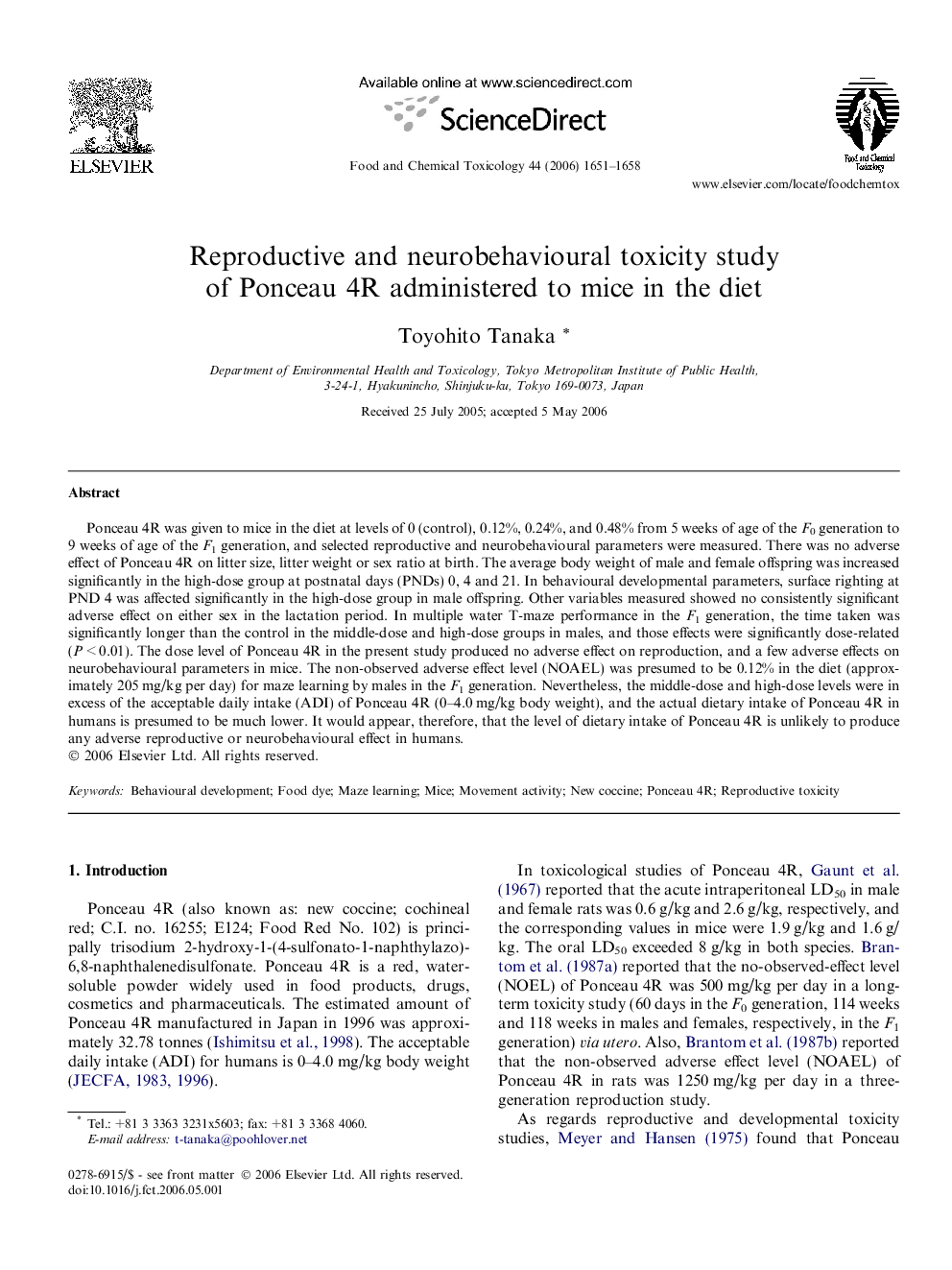| Article ID | Journal | Published Year | Pages | File Type |
|---|---|---|---|---|
| 2587869 | Food and Chemical Toxicology | 2006 | 8 Pages |
Ponceau 4R was given to mice in the diet at levels of 0 (control), 0.12%, 0.24%, and 0.48% from 5 weeks of age of the F0 generation to 9 weeks of age of the F1 generation, and selected reproductive and neurobehavioural parameters were measured. There was no adverse effect of Ponceau 4R on litter size, litter weight or sex ratio at birth. The average body weight of male and female offspring was increased significantly in the high-dose group at postnatal days (PNDs) 0, 4 and 21. In behavioural developmental parameters, surface righting at PND 4 was affected significantly in the high-dose group in male offspring. Other variables measured showed no consistently significant adverse effect on either sex in the lactation period. In multiple water T-maze performance in the F1 generation, the time taken was significantly longer than the control in the middle-dose and high-dose groups in males, and those effects were significantly dose-related (P < 0.01). The dose level of Ponceau 4R in the present study produced no adverse effect on reproduction, and a few adverse effects on neurobehavioural parameters in mice. The non-observed adverse effect level (NOAEL) was presumed to be 0.12% in the diet (approximately 205 mg/kg per day) for maze learning by males in the F1 generation. Nevertheless, the middle-dose and high-dose levels were in excess of the acceptable daily intake (ADI) of Ponceau 4R (0–4.0 mg/kg body weight), and the actual dietary intake of Ponceau 4R in humans is presumed to be much lower. It would appear, therefore, that the level of dietary intake of Ponceau 4R is unlikely to produce any adverse reproductive or neurobehavioural effect in humans.
